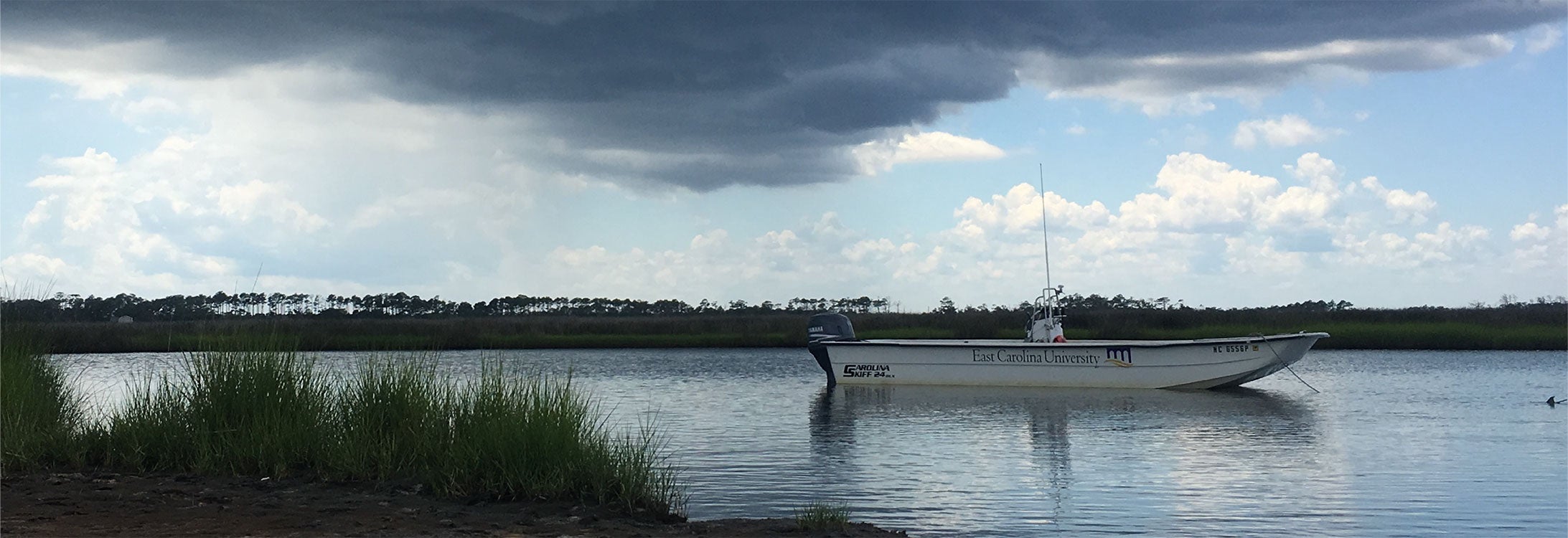About
Program
The mission of the IDPBBC program is to promote student creativity and excellence via the acquisition, interpretation, and synthesis of scientific information through three scientific concentrations: Biology, Biomedicine, and Chemistry. Students pursue individual interests in the context of a structured but flexible program of classroom instruction, theoretical or empirical research, professional development experience, and a doctoral dissertation.
The IDPBBC program is based on ECU’s strong tradition of liberal arts education and research in the life sciences. The IDPBBC program seeks to meet the growing need for professionals and researchers with the highest academic degree in various job markets, including academia, industry, government, and the private sector. To do so, it emphasizes an integrated and interdisciplinary approach to life sciences studies with three disciplinary foci/concentrations. Students participate in a common core curriculum and subsequently pursue a concentration in their chosen field of specialization. Each IDPBBC student is formally affiliated with one of the three academic units, and their research is centered on Biology, Biomedicine, or Chemistry.
IDPBBC Standard Operating Procedure
IDPBBC Concentrations
Biology
The Biology concentration has experimental biology as its primary focus. This concentration is designed to provide interdisciplinary doctoral training in molecular genetics, cell and molecular biology, plant biotechnology, biochemistry, ecology, systematics and evolution, developmental biology, reproductive endocrinology, neurobiology, and physiology. Students in this program will receive broad exposure to topics that range across all the life sciences. Visit on Biology facilities for more information.
Biomed
The Biomedicine concentration provides interdisciplinary doctoral training that can be based in basic science or clinical departments in the Brody School of Medicine. Broad areas of research opportunities include cancer biology, cell physiology, immunology, stem cell biology, biochemistry, molecular biology, pharmacology, toxicology, neuroscience, and the biology of bacterial and viral pathogens. Visit BSOM facilities for more information.
Chemistry
The Chemistry concentration is designed to provide doctoral education at the interface between chemical, biological, and basic biomedical sciences. Students in this program will receive broad exposure to topics in chemistry and related biological sciences. The department has expertise in both the experimental and computational methodologies used to investigate the synthesis, structure, function, reaction mechanisms, and molecular dynamics of biologically important compounds. Visit Chemistry facilities and Pharmaceutical Center for more information on Chemistry facilities.
Staff
ECU Indigenous Land Acknowledgment
We acknowledge the Tuscarora people, who are the traditional custodians of the land on which we work and live, and recognize their continuing connection to the land, water, and air that Greenville consumes. We pay respect to eight recognized tribes; Coharie, Eastern Band of Cherokee, Haliwa-Saponi, Lumbee, Meherrin, Occaneechi Band of Saponi, Sappony, and Waccamaw-Siouan, all Nations, and their elders past, present, and emerging.
For more information, visit the Ledonia Wright Cultural Center’s website.
